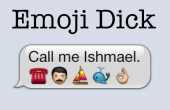Mariel Tishma
Mariel Tishma is an honors student at Columbia College Chicago studying creative writing and a minor in biology (not three red squirrels in human clothes).
Contributor I
- Lurker
- Sharp-Eyed Citizen
- ?
- Articles
2 - Featured
2 - Comments
14
- Ext. Comments
6 - Processed
8 - Revisions
6
- Topics
4 - Topics Taken
1 - Notes
12
- Topics Proc.
7 - Topics Rev.
0
- Points
465 - Rank
X - Score
243
Latest Articles
Latest Topics
Music Curation as Narrative WritingFilms and TV shows have soundtracks. Authors often write to specific songs or associate music with their works. The "writing playlist" is sought after by many fans, and famixes (playlists often created for public listening attempting to capture the mood or heart of a character or story) in and of themselves are becoming a new genre of playlist. Some songs even today tell stories, and may rise out of the tradition of epic poetry. To what degree can music tell a story on its own? How often does the line intersect? Should it? Is some form of narrative inherent in any medium using words? And how does this relate to scores or instrumental themes?
|
Santa Claus as a Chaotic FigureSt. Nick/Santa Claus is often presented as a jolly, warm, and overall positive spirit of the holiday season. However, a closer look at other culture’s "St. Nick" figures (creepier ones like Krampus) and the like could present a darker side. Aside from that, the article would also discuss or look at the deeper motivations behind the St. Nick figure. Why make toys? Why distribute them? What is his motivation? In some ways Santa can be considered "chaotic good"–a figure operating generally for good under their own moral structure. No one has told St. Nick to do these things, he does so of his own volition and for his own reasons. Whose system of morals does the Santa judge children by? What would happen if children were judged on a different system of morals–perhaps "good" children were no longer the traditional moral good, but rather the most ambitious or the most cunning children? Additionally, the santa *punishes* bad children. This goes against the traditional "reform" system where those who are bad are brought gently to good. Krampus type figures even bodily kidnap or harm children to punish them. (A fun and possibly seasonal article.)
|
Do Settings in Movies Still Matter?It seems that in most popular movies the set or the setting isn’t considered as complexly as the setting of say, a stage play or novel, would be. The article would seek to understand the purpose behind settings in modern films, and if they are (or ever were) an extension of the message the film was trying to get across. Consider the following: Does it really matter that the fight took place in a warehouse instead of an alley? Are there cases where the setting is still heavily influenced by symbolism and imagery? Is it all about the mood or is there something deeper?
|
Merits of writing longhand versus typingMany of the old "classic" writers chose to write all their work by hand first and then type, if typing was available at all. Has the use of the computer and typing improved writers ability to perform their craft? Do writers today who choose to write long hand have an advantage?
|
Latest Comments
| Creative Texting: Writing and Textspeak | |
Perhaps if they were texting you they might change their legibility, but does it really matter if they were texting someone who might understand them? “Standard legibility” is always changing, even in formal writing. John Humphrys (who despises texting) mentions in his piece that he’s had to adapt to changing rules involving hyphenated words. Would you feel so strongly if someone were not following those new hyphen related, and other rules? I do agree, though, that if one were a creative writer trying to incorporate textspeak into a piece to be read by a large audience they would certainly have to contend with the familiarity of their audience with the textspeak they were trying to use. Thank you for reminding us, as writers, to always keep our audience and readers in mind. | Creative Texting: Writing and Textspeak |
That’s exactly my feeling! Although most texts are free from the character limit, people still tend to limit their word usage or change their form of expression to convey their feelings, similar to haiku. Thanks for bringing this up! | Creative Texting: Writing and Textspeak |
In my research and personal experience abbreviations have actually taken on a new form to convey voice and emotion! Predictive text and the like has changed their usage from saving time to being a deliberate choice. When answering a text from my friend who’s just told me a new song from an artist we both like has come out I might answer “omg!” or something similar to help my friend see, and “hear” my reaction and excitment. If the same friend were telling me about a particularly irritating person in their class I might respond with the full written “oh my god” to convey my mutual annoyance. For more information I would check out the links embedded in the article going out to the articles “How to say “Yes” without saying “Yes” and “What’s the Difference Between ‘you’ and ‘u'” for some more reading if you’re still curious. Sali Tagliamonte also has a good study of this kind of thing called “Linguistic Ruin? LOL!” | Creative Texting: Writing and Textspeak |
Most linguists seem to agree that the use of textspeak and diverse language actually demonstrates a complex understanding of language. Young people have to have “developed powers of higher verbal expression” in order to properly use textspeak. As I quoted in this article, David Crystal (a linguist) states that in order to use textspeak one must know how far they can break the language down and still be understood. You can’t know what “tht” means unless you can fill in the missing vowels, and know that a recipient will “hear” the missing letter because of how we read and speak consonant sounds. You can’t use abbreviations like “omg” unless you can fill in the missing words, and understand the tone conveyed as well. This is echoed by John McWhorter, Derek Dennis, and Sali A. Tagliamonte (all linguists) among many others. I agree that perhaps the text message or other textspeak forms isn’t the best way to convey one’s most complex ideas, but it isn’t the cheap, simplified mode of communication some may see it as. It is just another, newer form that should be taken for what it is, without initial judgment. | Creative Texting: Writing and Textspeak |
Thank you for reading, and trying, at least to understand. That is much appreciated. I understand where emoji and the like can become unifying or sanitizing. However, from a writing perspective, understanding the character and understanding how people tend to communicate, can limit that kind of “crying emoji only” response. Textspeak is more than emojis and shortening words. It’s also about knowing how to convey your tone. Thinking about my own textspeak conversations, people switch easily between formal tone and informal. Comforting someone isn’t usually the time to use the informal. I do agree though, the works we have now using textspeak and emoji are not using it the most masterful effect, and are relying a lot on the “crying emoji=sad” equation without much consideration for how people truly communicate. Thanks again for your thoughts! | Creative Texting: Writing and Textspeak |
Exactly how I feel about the thing! It’s all a matter of considering audience or recipient. | Creative Texting: Writing and Textspeak |
This is a very good point! I hadn’t thought of this in these terms, but as I said, I doubt adaptations written in textspeak will ever be heralded as good. I try and think of it in terms of “experiments” (which didn’t work well in this case). Works like Emoji Dick, and perhaps even OMG Shakespeare, were done because it was possible. But due to the limitations of emoji it didn’t really work. Perhaps this is a sign that original works incorporating textspeak should be the new direction for using textspeak in publishing. | Creative Texting: Writing and Textspeak |


That is a very good point. Maybe that’s why textspeak has grown to include variations in punctuation and emojis together to better convey emotion!
As for your comment about e-mail,I would agree, in most cases. But that is because, an e-mail is not the usual expected place for textspeak, unless of course I were e-mailing someone who would expect it from me. Using it in an e-mail to a co-worker would be unexpected and therefore less acceptable. E-mailing a friend partner in the middle of the day would be a more suitable place for it.